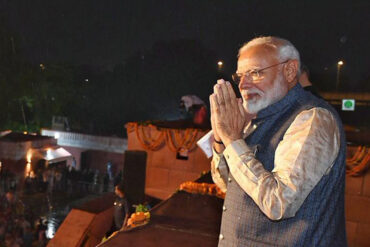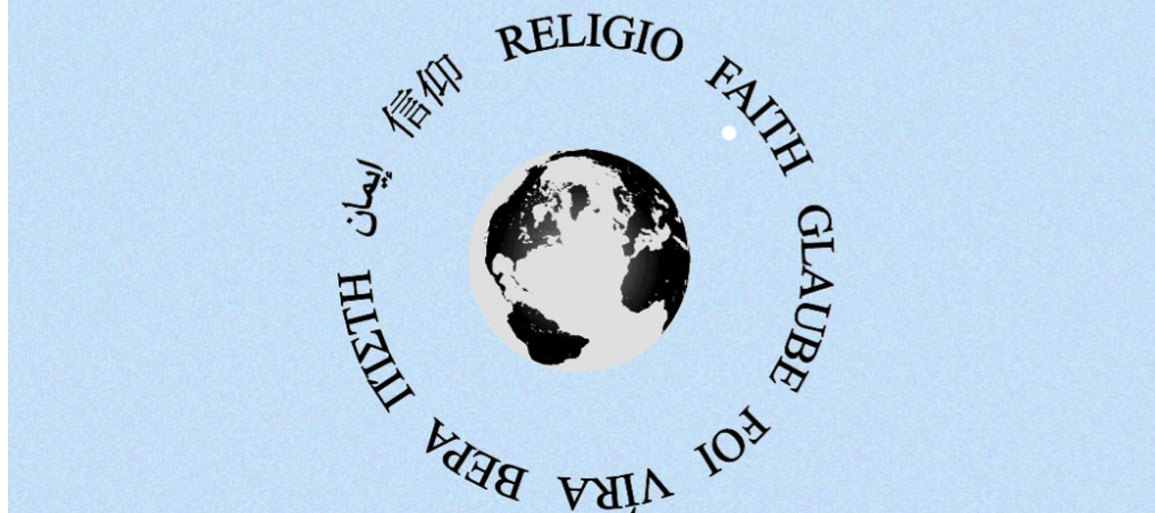Religion is the only thing that we may live, and die for, without knowing what it is. It is deemed a basic human necessity, but no one really cares to know what need it should really serve. Religion is the most complex and mysterious of all things. It is centred on eternity. Even cutting-edge astrophysicists, esoteric philosophers and mind-boggling geniuses in a variety of other disciplines admit that they are illiterate on eternity. Religion, in contrast, is a mass of eternity-specialists who are, otherwise, mediocre in all respects. Those who guide even exceptionally well-endowed thinkers in this beyond-death cosmic adventure via the Milky Way to everlasting life are pretty pedestrian in most cases.
This may well be valid; but if it is, its logic needs to be made intelligible. All the more so, if religion is brought into ‘the democratic space’. The custodians of religion may dodge this duty so long as they confine themselves to their religious spaces where the practice of religion remains a private affair. But the moment religion is brought into the public space as assertions, claims, and demands, the duty to make them intelligible to the public on non-religious grounds becomes imperative. The democratic space is inhabited not by believers, but by citizens. Citizens don’t share articles and stereotypes of faith. They have a right, hence, to be persuaded on the reasonableness of what is asserted in the public sphere.
It is not my argument here that religions are irrational. They could well be eminently rational. But, no attempt is made to render their rationality intelligible to others. This is a problem not only for the secular society, to which the democratic space belongs, but also to the followers of religions. Consider the following:
The essence of religion is love; for God is love. It is love that enables a believer to commune with a personal God. An abstract God is incapable of love. So even in religions where the idea of God is abstract—as in Nirguna Brahman—Bhakti traditions arise, in which the devotee loves a personal god, or ishta devata.
Love unites. It overleaps barriers and destabilises structures of power. Love, for that reason, is suspect to all power-centres, especially the religious. All religions swear by and, in the same breath, enfetter love. But so long as a religion keeps love under bit and bridle, it cannot but turn against God. It is this paradox that is unveiled in the crucifixion of Jesus. So, the present-day apprehensions about love-jihad has deep historical roots. Even so, it cannot be brought into the democratic space, unless those who do so offer persuasive reasons for pursuing this agenda, which is wholly lacking.
This is not peculiar to the antagonists of love-jihad. It characterises religious posturing in general. Rather than give intelligible explanations, making one’s claims and advocacies seem reasonable, scope for discussing them is denied by maintaining that ‘faith is above facts’. Such an assertion can stand only on the principle, ‘might is right’. It is, by definition, a majoritarian (inter-religious) or authoritarian (intra-religious) prerogative.
Now a word about faith. While love is universal, faith is perforce parochial. There is no Christian love, or Hindu love, or Muslim love. There is only love; love sans labels. But faith is divisive. There is a Hindu faith, a Muslim faith and so on. Faith is divisive even if it is faith in God who is universal. If God is indeed universal there should have been only one religion; in fact no religion. Historically, God-concepts asserted by religions have provoked bloodbaths. Religious wars have been fought more ferociously within religions than between religions. The history of decades-long Catholic-Protestant wars in Europe proves this.
From a practical point of view, therefore, love and faith are polar opposites; even when they are hitched to the same God. This contradiction is most glaring in relation to Christianity. It affirms that God is love. But by appending exclusivity to its faith-community—which religions are under compulsion to do—it nurtures in believers the very opposite of love towards non-Christians. No religion can justify its separate existence, in a context of religious plurality, without proving all else inferior to itself. This is a function not of love, but of hate, untruth and vanity.
There are faiths within faith due to sects and denominations. Christianity is centered on Jesus Christ. But there are as many Christs as there are Christian denominations. Each denomination claims a privileged relationship to its own Jesus, who is believed to be partial towards its members and indifferent towards the rest of Christendom. So, denominational Christianity is de facto quasi-polytheistic because Christians showcase many Christs. The Catholics administer the transubstantiated body and blood of Jesus to Catholics believers. But it is unthinkable to share the same with Protestant Christians, who, it seems, believe in a different Jesus. So what, if any, is the connection between the Catholic Christ and the protestant Christ?
A host of irrationalities abound in religions. No religious establishment allows a forum—even a forum exclusive to its own members—to discuss any aspect or article of faith or practice. Faith is kept as a closed chapter, which it is heretical to re-open. Whatever is imperilled by responsible rational discussion—which is basic to truth-seeking—is not faith.
The need for a public debate on religion assumes unprecedented urgency today as religious leaders are becoming increasingly assertive in the public domain. Consider the political pressure that bishops exerted on the government of Kerala to have churches opened for Sunday worship. It was not preceded by any discussion within the Christian community. It was an autocratic decision that church leaders arrived at for reasons known only to themselves. Yet, this decision was projected as the wish and will of Christians. To millions of believers, though, this very demand of the bishops precipitated fundamental questions pertaining to their spiritual sensitivities and convictions. Religions remain pockets of oligarchy in this age of democracy.
The statements above argue the need to initiate a debate on what religion needs to be in our times. What is deemed beyond such a scrutiny is nervously unsure of itself. It shows itself up, for that reason, as an establishment founded on unbelief in itself. It is hypocritical for it, then, to masquerade itself as the custodian and defender of faith, for it has no faith in itself. It is through rational debates that the relevance of a religious tradition becomes clearer to all in the given context. It can also stimulate religious traditions to grow in self-awareness and vitality. It is the absence of such religious vitality that is sought to be hidden with publicly paraded communal zeal on the one side, and by power-brokering via religion-politics nexus, on the other.
It is not a pretence of piety, but an open-minded, the truth-seeking, debate that links religion to our lived experiences that we need today. If religion is made for man in an age of democracy, it is imperative that the practice of religion is brought into harmony with the basics of democracy. This is a thousand times healthier than the behind-the-scene—give-and-take that goes on between the power-centres of religion and politics.







